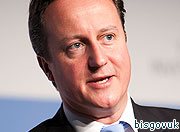The Government could override family ties in order to get more children adopted in England and Wales, in a move branded “deeply troubling” by The Christian Institute.
Generally courts are reluctant to take children away from their natural families unless the best interests of the child require it.
However, the Children and Social Work Bill outlined in the Queen’s Speech yesterday intends to “tip the balance in favour of permanent adoption”.
Overriding families
Writing in The Sunday Times ahead of the Bill’s announcement, David Cameron criticised the fact that social workers and the courts prioritise placing children with relatives.
Mr Cameron lamented that children are not being placed with “new families” as a ‘permanent solution’.
Arguing that “deeper, more intensive” action was needed on adoption, he pledged to legislate in favour of permanent adoption “even when that means over-riding family ties”.
Colin Hart, Director of The Christian Institute, expressed concern that although David Cameron was objecting to placing children with great-aunts the same legal powers could be used against grandparents.
Strangers
“The Prime Minister’s comments are deeply troubling.
“The fact that the courts are so keen to keep children within their families seems to have upset the Government. For years adoptions have been held back by political correctness and he is right to look to give adoption its proper place.
“He says he wants to stop distant relatives such as great aunts being given preference. But his plans go much further and could easily sideline active grandparents in favour of adoption by complete strangers.
“Let’s not swing from one extreme to another.”
Guardians
In 2005 the Government introduced Special Guardianship Orders (SGOs). These are intended for those children who cannot live with their birth parents and who would benefit from a legally secure placement, more permanent than fostering.
A total of 5,386 SGOs were granted in 2015.
An analysis of SGOs published in 2014 showed that out of a sample of 230 SGOs, 203 (88 per cent) were made for relatives of the child, 46 per cent to grandparents.

